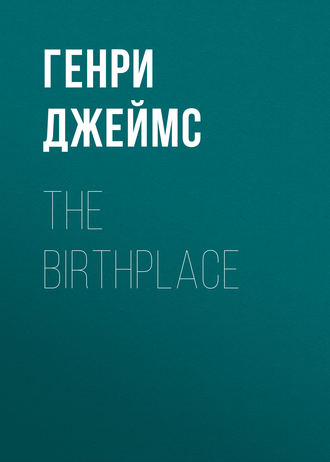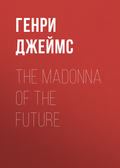
Генри Джеймс
The Birthplace
They were doing that certainly with some success when he returned to them ten minutes later. She sat between them in the beautified Birthplace, and he couldn't have been sure afterwards that each wasn't holding her hand. The three together had at any rate the effect of recalling to him—it was too whimsical—some picture, a sentimental print, seen and admired in his youth, a "Waiting for the Verdict," a "Counting the Hours," or something of that sort; humble respectability in suspense about humble innocence. He didn't know how he himself looked, and he didn't care; the great thing was that he wasn't crying—though he might have been; the glitter in his eyes was assuredly dry, though that there was a glitter, or something slightly to bewilder, the faces of the others as they rose to meet him sufficiently proved. His wife's eyes pierced his own, but it was Mrs. Hayes of New York who spoke. "Was it then for that–?"
He only looked at them at first—he felt he might now enjoy it. "Yes, it was for 'that.' I mean it was about the way I've been going on. He came to speak of it."
"And he's gone?" Mr. Hayes permitted himself to inquire.
"He's gone."
"It's over?" Isabel hoarsely asked.
"It's over."
"Then we go?"
This it was that he enjoyed. "No, my dear; we stay."
There was fairly a triple gasp; relief took time to operate. "Then why did he come?"
"In the fulness of his kind heart and of Their discussed and decreed satisfaction. To express Their sense–!"
Mr. Hayes broke into a laugh, but his wife wanted to know. "Of the grand work you're doing?"
"Of the way I polish it off. They're most handsome about it. The receipts, it appears, speak–"
He was nursing his effect; Isabel intently watched him and the others hung on his lips. "Yes, speak–?"
"Well, volumes. They tell the truth."
At this Mr. Hayes laughed again. "Oh they at least do?"
Near him thus once more Gedge knew their intelligence as one—which was so good a consciousness to get back that his tension now relaxed as by the snap of a spring and he felt his old face at ease. "So you can't say," he continued, "that we don't want it."
"I bow to it," the young man smiled. "It's what I said then. It's great."
"It's great," said Morris Gedge. "It couldn't be greater."
His wife still watched him; her irony hung behind. "Then we're just as we were?"
"No, not as we were."
She jumped at it. "Better?"
"Better. They give us a rise."
"Of income?"
"Of our sweet little stipend—by a vote of the Committee. That's what, as Chairman, he came to announce."
The very echoes of the Birthplace were themselves, for the instant, hushed; the warden's three companions showed in the conscious air a struggle for their own breath. But Isabel, almost with a shriek, was the first to recover hers. "They double us?"
"Well—call it that. 'In recognition.' There you are." Isabel uttered another sound—but this time inarticulate; partly because Mrs. Hayes of New York had already jumped at her to kiss her. Mr. Hayes meanwhile, as with too much to say, but put out his hand, which our friend took in silence. So Gedge had the last word. "And there you are!"







